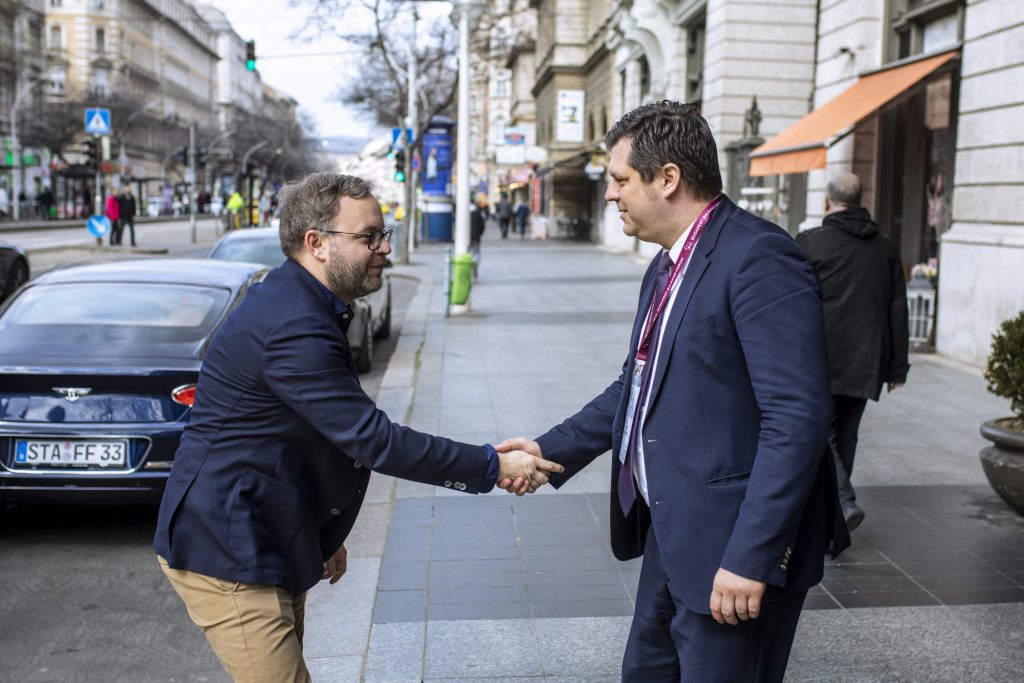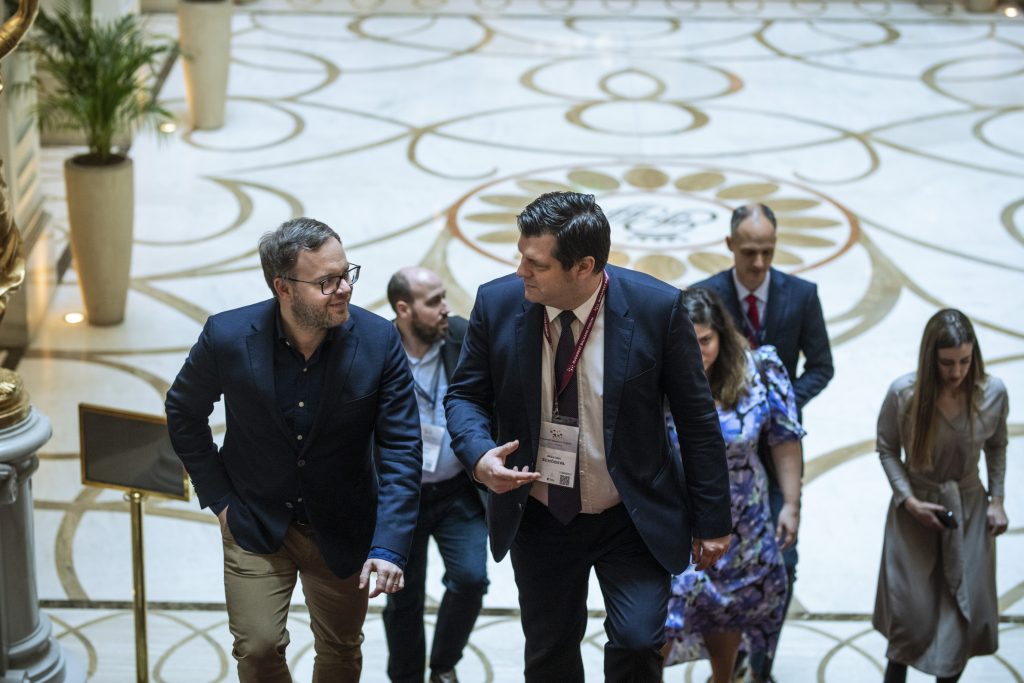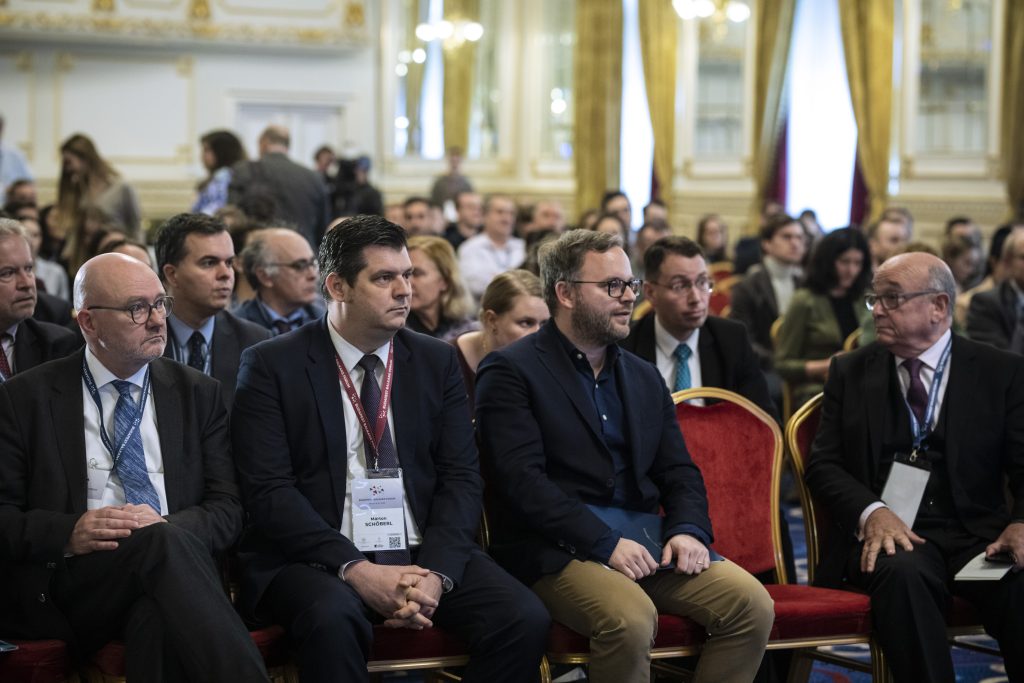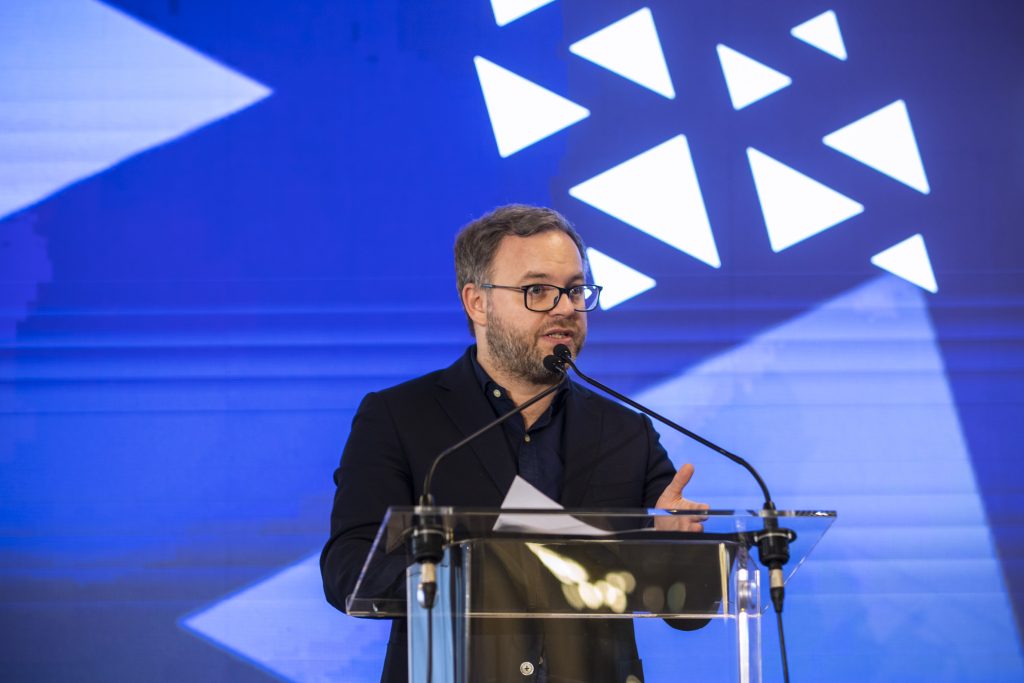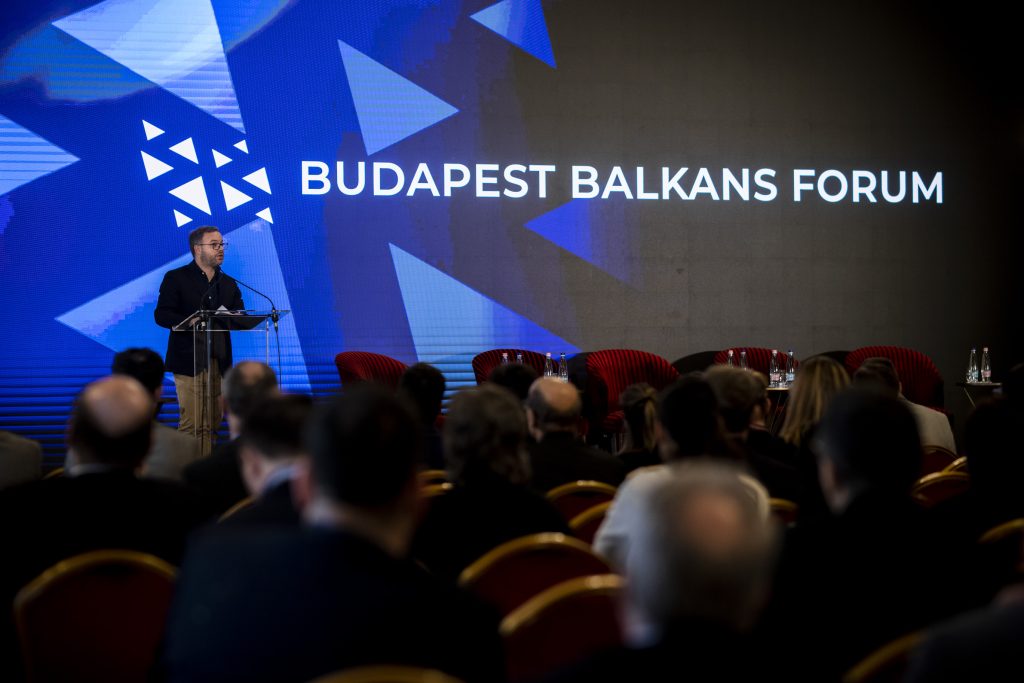On the second day of the Budapest Balkans Forum 2023, Balázs Orbán, Political Director of the Prime Minister at the Prime Minister’s Office of Hungary, also held a keynote speech. Reflecting on the theme of Budapest Balkans Forum, “Hungary connects”, the speech of Balázs Orbán addressed the important relationship of Hungary and the Balkans states as well as how Budapest views its neighbouring region within the context of EU integration process.
Throughout history, the rest of the world often incorrectly regarded Hungary and the Balkans as a joint political and economic unit, overlooking the fact that the Balkans itself is already a region of great diversity. However, “since we are here to talk about connectivity, this is indeed good news for all of us”, he noted. “You cannot connect what is already united. Connectivity cannot be done without differences. But also, it cannot be done without sharing something in common”, Mr. Orbán contended. Therefore, “connectivity is a tremendous opportunity for both Balkans and Hungary”.
The end of Cold War has brought about the world order that we know today, an order in which the Western model of free trade and political institutions is exported all over the globe in the belief that shaping the world in the image of the West will help overcoming and eliminating the differences between East and West. As it turned out, this neo-liberal project has achieved the exact opposite of its promises. By the end of the 2000s, problems of this model have become more evident: the financial crisis of 2008 proved that unregulated market is fragile and harmful; migration crisis, Brexit, presidential victories in the US, Covid-19 and the war in Ukraine highlighted from time to time the unsustainability of this model and showed that the unipolar world order no longer exists.
To preserve their dominance, the West has re-established a system of blocs where they can play the leading role within an exclusive sphere of influence. In such a system, there will be leaders and peripheral states. Countries must choose a centre to revolve around, and that centre is also their sole gateway to connect with other actors. In other words, as each player chooses a bloc to commit to, their liberty to choose partners, their opportunities to improve the economy and living standards will be limited by the bloc. “This is dangerous for us, for Hungary and Central Europe”, stated the Political Director. “Let us be in no doubt that in this scenario, our region would be a periphery. If this kind of bloc-based system is restored, we will lose our prospect to develop and catch up with the highly developed countries. Hungary has had particularly bad experience in such a bloc”, he continued.
The war in Ukraine and the resulting economic sanctions imposed on East-West trade route has clearly demonstrated the existence of such blocs. More importantly, the apparent political divergence has put countries like Hungary at a delicate position as both sides are crucial to the country’s economic success. For that reason, “a bloc system, or reemerging or reconstructing a bloc system, is contrary to Hungary ambitions”, Mr. Orbán affirmed.
To override this “bloc logic” that does nothing but hinders chances to be prosperous, Mr. Orbán stressed the need for a new strategic model that focuses on increasing relations. “We need more connections, not fewer. We need less decoupling, not more”, as he pointed out. As the keyword of this Hungarian strategy is Connectivity, the country wishes to expand its connections to as many countries as possible. The recent energy crisis has once again demonstrated the merit of having such an extensive network. By taking control of our own relations without any limitations from the bloc leaders, Hungary can actively utilize its strengths in pursuit of its own interests, explained the keynote speaker.
A closer look at Hungary’s current foreign policy landscape indicates that beside the great Western allies of NATO and the EU, Hungary also prioritizes specialized, single-focus organizations and regional partnership such as the Visegrad Group, the Vienna-Budapest-Belgrade cooperation in tackling illegal immigration, the Three Seas Initiative, or China’s Belt and Road Initiative. On that note, the Political Director underlined the pivotal role of regional cooperation, specifically with the Western Balkans. Unlike Brussels’ great hesitation, Hungary has always been the loudest advocate when it comes to EU integration of the region. “States of the Balkans have an excellent geopolitical location, cultural heritage to become on one hand, part of the European integration, and on the other hand, a connecting route between the West and the East”, pointed out Mr. Orbán. Strong and deep tie with the Balkans is not only a part of Hungary national interest, but also an indispensable part of the country’s strategy of connectivity; where Hungary and the Balkans’ interests coincide, connectivity will act as a gravitational force that strengthen their relation and direct them both to their desired goal.
Last but not least, the Political Director also emphasized the importance of preserving the traditional values that have connected the West within itself for thousands of years. The point is, he said, we must not forget who we are and where we come from as we join hands to overcome the difficulties waiting ahead.
